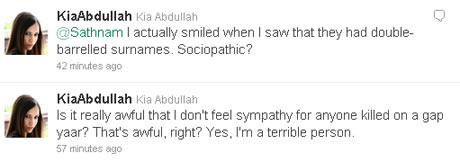An article in the newly launched Dorchester Review discusses the teaching of history:
Here in Canada the preoccupation with victimhood has mostly centred on Japanese Canadians and residential school “survivors.” Peter Seixas in Teaching Canada’s History (pp. 18-21) thinks children should be encouraged to condemn Caucasian writers who used terms like “Eskimo,” “primitive,” and “pagan.” What Seixas, a professor of education, seems not to appreciate is that schoolchildren are too young for this kind of academic pseudo-complexity and that their worldview is warped by pretentious classroom efforts to “heal the wounds.” Indeed what he advocates is what we have already had in many locales for a generation and counting.
[. . .]
In its more recent form, the classical model proposes that various integrated fields from science and math to English and second or classical languages should be covered at three stages (hence “trivium”), each time to a deeper, more systematic and engaging degree. For example, one approach for history could look like this, in four fields: (1) classical antiquity, (2) medieval-renaissance, (3) modern history, and (4) national, regional, and local history. Taught as a trivium, each of these four fields would be covered three times between grades one and twelve. Students today complain about repetition, but that is because they are tortured repetitively with the same introductory material by different uncoordinated teachers — rather than going into the subject more deeply and systematically as they grow older and more capable. As Anna Clark wrote in her 2008 paper on history teaching in Australia and Canada, “There is little point mandating the subject if it does not engage students and teachers.” Textbooks should be used as a guide not a crutch, as classical educators have long maintained.
[. . .]
We all have far to go. First, the evidence suggests that effective historical memory work is haphazard and unsystematic in public and many private schools. Students arrive at senior grades fundamentally culturally deprived and ignorant of facts. Even if narrative history is “compulsory” in Britain to age 14, in practice pupils lack “chronological understanding,” according to Ofsted, the agency that inspects school standards. Teachers have failed “to establish a clear mental map of the past.” Students “knew about particular events, characters and periods but did not have an overview.” In Canada, social studies curricula in the English-speaking provinces reveal a similar prevalence of disconnected, episodic case studies. In England (and presumably elsewhere), as Michael Gove’s critics admit, “The real problem is not with the curriculum, but with the schools’ failure to deliver it.”
Secondly, “critical skills” are introduced too early. “Where ignorance and scepticism meet, a course on British history becomes a course on running Britain down,” remarks one Financial Times writer: “By age 16, students will have as much cynicism and ‘distance’ as any educator could wish.” In Canada, a typical curriculum (Alberta’s) prescribes “historical thinking” in grade nine, “a process whereby students are challenged to rethink assumptions about the past.” But how can students “rethink” something they haven’t learned in the first place?
Regrettably, the British curriculum downgrades history to an elective after age 14, a premature cut-off that sabotages the three-stage process that classical educators promote. It reduces history to an elementary subject. It’s similar in Canada: after children are immersed in relativist “traditions and celebrations” (grade two in Ontario), they jump around in grades three to seven social studies from settlement in Upper Canada backwards to the middle ages; backwards again to antiquity, followed illogically by first nations and explorers and a survey of Canada. After grade seven, as in Britain, history becomes an elective. We have all seen the schoolbus with some banal motto painted on the side such as “On the Journey of Learning.” Most parents may never realize what this really means: “On a Journey to Nowhere in Particular.”
I went to school in the 60s and 70s and I loved history . . . just not the crap that was taught in history classes. It seemed to me that they deliberately tried to make Canadian history as boring as humanly possible. I had a few teachers who really seemed to enjoy teaching the subject, but for most of them it did appear to be just a tedious exercise they had to go through.




